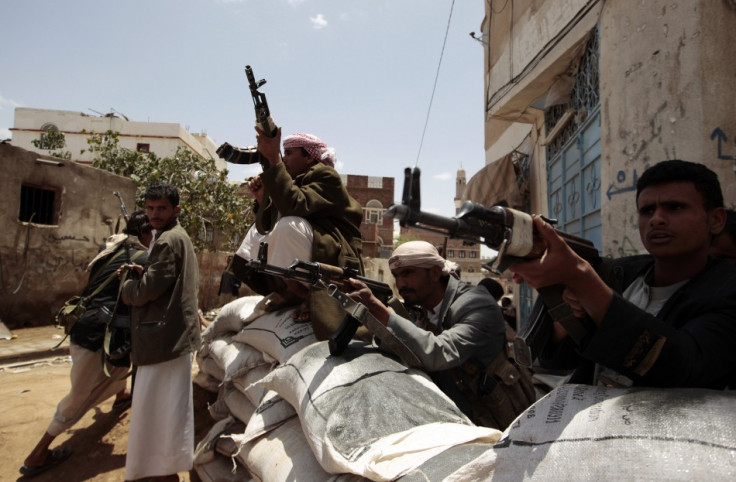Yemen: Has al Qaeda disappeared?

As Yemen is facing rapid and unprecedented changes, the country that was a year ago in the news mainly for being a haven for terrorism is not the number one priority of the U.S and the West anymore. So what happened to all the Yemeni Al-Qaeda fighters that are supposed to be in hiding on the country's territory, have they fled to Libya?
The slowness and reluctance of the International community to confront the fragile political situation in Yemen surely raises questions as to why the troubled nation was portrayed as poverty stricken base for terrorists. This time last year Yemen was making the headlines as a dangerous state where Islamist fundamentalists were posing a threat to the regime but also to the region as a whole. Today however it seems that what happens in Yemen stays in Yemen as the International Community appears totally disinterested in the collapse of the government. So what caused this change of heart? Did Al-Qaeda really happen to be influential in the country or was it just an attempt to boost the American-led war on terror?
Yemen has faced a set of profound political and economic issues for decades. It is the poorest country in the Arab world, with 40 per cent living below the poverty line, 50 per cent of the country is illiterate, and 35 per cent of the population is unemployed.
The government of President Ali Abdullah Saleh has always been weak outside the capital, as it lacks both resources and credibility. It also has been accused of creating endemic corruption and had to try and suppress a bloody Zaidi Shia rebellion in the northern Saada governorate as well as a deepening secessionist movement in the south over a long period of time.
The link between Yemen and radical Islam dates back to the 1980s, as thousands of Yemenis responded to the call for jihad against the Soviets in Afghanistan and returned home afterwards. In Guantanamo, Yemenis convicts make up the largest core contingent.
However, international efforts to fight terrorism in Yemen only began in 2000 after the al-Qaeda suicide bombing of the Navy Destroyer U.S.S Cole.
As the Americans launched the "war on terror", President Saleh soon understood who he needed to side with and demonstrated a newfound willingness to fight terrorism and by 2003 the U.S. considered the Yemeni terrorist threats to be minor.
All changed however when in 2006 twenty-three al-Qaeda suspects escaped from a Yemen prison. One of them, Nasser al-Wahishi, was accused of re-establishing the al-Qaeda organization in Yemen, to further its sphere of influence and prepare new attacks.
In late 2008, Saudi al-Qaeda leaders, in response to a successful Saudi government crackdown, urged their members to flee to Yemen and join forces with the resurgent al-Qaeda group there. By 2009, the two groups allegedly merged officially to form al-Qaeda in the Arabian Peninsula (AQAP), which was supposed to transform the Yemeni branch from a local to a regional supra organisation.
At that time, the U.S. insisted that the group would be at the forefront of the next wave of jihad, and was determined to bring down the Yemeni government.
While it is true that AQAP has claimed responsibility for numerous attacks since 2006 including a failed August 27, 2009 assassination attempt of Saudi Prince Muhammad bin Nayef; two attacks on the U.S. embassy in Sanaa; attacks on Italian and British embassies; suicide bombings of Korean tourists in March 2009 and Belgian tourists in January 2008; four oil pipeline bombings; attacks on several oil facilities; and the bombing of a Japanese oil tanker in April 2008, it seems somewhat strange that the uprising aiming at the overthrow of Mr Saleh does now not seem to be a cause for worry in the West.
Especially as in late December 2009, Yemeni Foreign Minister Abu Bakr al-Qirbi estimated that between two hundred and three hundred AQAP operatives live in Yemen, and are supported by thousands of locals. Have these people disappeared, perhaps bored with supporting al-Qaeda since the death of bin Laden? Perhaps AQAP was never the threat it was made out to be, or perhaps some of these individuals are amongst those protesting against the Saleh regime.
Today Yemen's main opposition coalition has announced, after President Saleh left for Saudi Arabia, that they will accept a transfer of power to the vice-president or seek to form a transitional government.
Can it be that Yemen's terrorists have all disappeared and that the opposition, for so long willing to go along with despotism, are now embracing democracy as is apparently happening in Libya? These are questions no one seems to be asking.
© Copyright IBTimes 2025. All rights reserved.





















